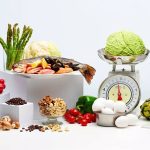When it comes to weight loss, there is no shortage of pills, drinks, and supplements claiming to help the weight fall off. But do weight loss pills help, and are they safe? Learn more about weight loss pills.
Some options are more popular than others, including certain pills, drugs, and natural supplements. These claim to help you lose weight, or at least to make it easier to lose weight when you combine them with other methods.
They tend to work via one or more of these mechanisms:
- Reducing appetite, making you feel more full so that you eat fewer calories
- Reducing the absorption of nutrients such as fat, making you take in fewer calories
- Increasing fat burning, making you burn more calories
What are weight loss pills?
Weight loss pills are tablets taken as part of a healthy diet and exercise regime to encourage weight loss. There are many kinds available, but most aren’t considered effective by the NHS.
Some types of diet pills may be ineffective in reducing weight. Others may be effective but considered too risky to use by the UK or European medical agencies. For this reason, some diet pills that might be available elsewhere in the world won’t be available in the UK.
Weight loss pills containing phentermine and topiramate have been shown to help reduce weight, but they aren’t authorized for use by the European Medicines Agency due to safety concerns. Other pills have been banned in the UK.
What is the most effective weight loss pill?
01 Orlistat
Orlistat is a prescription diet pill but it can be bought over the counter under the brand name Alli and Orlos. Under prescription, orlistat sometimes has the brand name Xenical. Our Online Doctor service can prescribe this weight loss pill, you’ll need to answer a few questions to make sure it’s right for you.
Multiple studies have demonstrated the benefits of orlistat when taken with a calorie-controlled, low-fat diet.
2. Caffeine
Caffeine is a stimulant found in coffee, tea, soft drinks, and chocolate. It is also often added to diet pills and supplements.
According to a study trusted Source of 76 obese adults, people who had high caffeine intake saw a greater reduction in fat mass, weight circumference, and overall weight compared to those who had low caffeine intake.
Side effects of caffeine include jitteriness, increased heart rate, and trouble sleeping.
3. Garcinia cambogia extract
Garcinia cambogia became popular worldwide after being featured on “The Dr. Oz Show” in 2012.
It’s a small, green fruit shaped like a pumpkin. The fruit’s skin contains hydro citric acid, the active ingredient in garcinia Cambogia extract, which is marketed as a diet pill.
How it works: Animal studies show that it can hinder a fat-producing enzyme in the body and increase serotonin levels, potentially helping to reduce cravings.
Effectiveness: In one meta-analysis, researchers explored four electronic research databases to investigate the effectiveness of herbal medicines, including garcinia Cambogia.
In a total of 54 randomized controlled trials in healthy adults with overweight or obesity, the authors found no difference in weight or body fat percentage between the garcinia Cambogia group and the placebo group.
A 2020 review that looked at eight trials on garcinia Cambogia found that, on average, it caused weight loss of about 3 pounds (1.34 kg).
Side effects: While it’s widely agreed that garcinia Cambogia is safe to take in recommended amounts, studies within the last few years have pointed to some serious side effects.
A 2018 study documented four cases of women who experienced acute liver failure after taking weight loss supplements containing garcinia Cambogia.
Additionally, hepatotoxicity, liver impairment, and some episodes of mania have also been reported in conjunction with taking garcinia Cambogia.
4. Glucomannan
Glucomannan is a type of fiber supplement. It works by absorbing water in the gut, leading to a feeling of fullness that may prompt people to eat less.
Studies appear to be conflicting on whether glucomannan can aid in weight loss, however.
A 2005 study trusted Source of 176 people indicated that glucomannan contributed to weight loss in healthy, overweight adults.
However, a more recent review of randomized control trials indicated that glucomannan did not appear to result in significant weight loss.
For those who do take glucomannan, side effects may include gas, diarrhea, and stomach pain.
5. Raspberry Ketones
Raspberry ketone is a substance found in raspberries that is responsible for their distinct smell.
A synthetic version of raspberry ketones is sold as a weight loss supplement.
How it works: In isolated fat cells from mice, raspberry ketones increase the breakdown of fat and increase levels of a hormone called adiponectin, which is believed to be related to weight loss.
Effectiveness: There are very few studies on raspberry ketones in humans, though one 2013 study looked at raspberry ketones along with some other ingredients and found a potential 2% increase in weight loss over 8 weeks when compared with a placebo.
One mouse study using massive doses showed some delay in weight gain.
However, high doses of raspberry ketones were also associated with higher blood sugar levels and higher levels of ALT, a liver enzyme, indicating liver dysfunction.
It’s unknown whether these effects would translate to humans. More research is necessary to determine any benefits and risks.
6. Conjugated linoleic acid
Conjugated linoleic acid is a type of fatty acid found mostly in beef and dairy. It has been marketed as one of the best weight loss pills for its potential to boost metabolism and decrease appetite.
However, the majority of the studies on conjugated linoleic acid leading to weight loss have been carried out on animals. According to a review trusted Source of research, weight loss appears to be minimal in human studies.
Conjugated linoleic acid appears to be safe in doses of up to 6 grams per day for up to 12 months. Possible side effects include stomach discomfort, diarrhea, or constipation. It may not be suitable for people who have diabetes.
7. Hydroxycut
Hydroxycut is a popular dietary supplement. There are different Hydroxycut products, which contain various ingredients. Hydroxycut products typically contain plant extracts and caffeine, although caffeine-free versions of the supplement are also available.
There are no studies that review Hydroxycut specifically. Caffeine, which has been studied, may contribute to small amounts of weight loss.
Since the ingredients of Hydroxycut vary, it is difficult to state the possible side effects. Hydroxycut supplements that contain caffeine may cause nervousness and increased heart rate.
Hydroxycut is considered a supplement and does not go through the same rigorous testing as drugs to determine its safety.
8. Diet
Diet is often mistaken for dieting. A well-balanced diet, which emphasizes fruits and vegetables and avoids overly-processed foods containing added sugars and trans fats, can help a person lose weight over time.
People can see a reduction in body fat through changes in their diet without using supplements.
Takeaway
Recent research confirms the various health benefits of black or green teas. Slimming tea, however, should be used with caution.
It is a good idea to consult a doctor or other healthcare provider with no ties to selling slimming tea before using any product.
A person should also do as much research as possible to find out about success rates, complaints, and potential side effects of the product they are considering.




